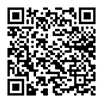Different types of demat accounts in india

Before 1996, when India's first Demat account launch, traders had to rely on physical copies of their transactions, checking at every step; thanks to the burden of managing shares, trading was boring and happened at a lower frequency. It's even more smooth now. But what exactly is a Demat account, and how does it assist you with your trading?
Before 1996, when India's first Demat account launch, traders had to rely on physical copies of their transactions, checking at every step; thanks to the burden of managing shares, trading was boring and happened at a lower frequency. It's even more smooth now. But what exactly is a Demat account, and how does it assist you with your trading?

Open a Demat Account
What is a Demat account?
The term "dematerialized" abbreviate as "demat." The term "dematerialized" refers to the electronic disposition of the shares kept in a Demat account. These electronic securities are not only easy to view, but they are also securely held in a digital, password-protected database. About anyone who has dabbled in the world of stock exchange investing has a Demat account, regardless of how infrequently they use it. Without a Demat account, it isn't easy to exchange.
Non-resident Indians, also known as NRIs, can trade in India by opening a particular form of Demat account. Demat accounts come in various shapes and sizes, but their functions are all the same. The different forms of Demat accounts that have made trading as open and straightforward today are mentioned below.
Demat Account Types
Fundamentally, traders can choose from three different forms of Demat accounts. Trading is available to both Indian residents and non-resident Indians via the demat accounts mentioned below. Be sure you select the right kind of Demat account for you, based on your position and other factors, since each of these Demat account forms has a different purpose. When you choose the best demat account for yourself, your business activity would be even more important. The following are some of them:
1. Demat account (regular):
It is a Demat account recommended for traders based in India. It is the most common Demat account since it is perfect for most people who only exchange equity shares. The shares that are purchased and sold in a standard demat account are held in electronic form. Remember that if you want to exchange futures and options, you won't need a traditional Demat account. Futures and options have an expiration date and do not need to be held in a Demat portfolio indefinitely.
The Securities and Exchange Board of India (SEBI) recently launched the Basic Services Demat Account (BSDA), a new Demat account form. A Basic Services Demat Account resembles a standard demat account in appearance. The only distinction is that there are no annual fees on this type of account if the account balance is less than $50,000. An investor's BSDA account balance is between $50,000 and $200,000, a $100 annual maintenance fee charged. The BSDA was founded on the principle of financial inclusion to assist investors who have yet to engage in the stock market by allowing them to choose from various demat account options available online.
2. Repatriable Demat account:
Non-resident Indians can also exchange Indian shares, which they can do through a repatriable account. It enables traders to send money overseas. One disadvantage of obtaining a repatriable demat account is that it necessitates a non-resident external bank account. You must close the Demat account you had as a resident Indian until you become a non-resident Indian.
You will pass shares to a non-resident ordinary demat (NRO) account until your account is locked. Assume you want to sell your stock. A repatriation ban applies in this situation. According to this repatriation limit, you can only repatriate a maximum of $1 million per calendar year (January to December).
3. Demat account that is non-repatriable
There is a second form of demat account that particularly recommend for non-resident Indians. A non-repatriable demat account is what it's called. One's funds and resources cannot be moved across nationalities with this kind of online demat account. A non-repatriable demat account, like a repatriable demat account, necessitates the association of one's funds with a non-resident ordinary bank account.
Conclusion
For both Indian residents and non-residents, there are three forms of demat accounts available online. There are three categories of demat accounts: regular, repatriable, and non-repatriable
Recent Posts
